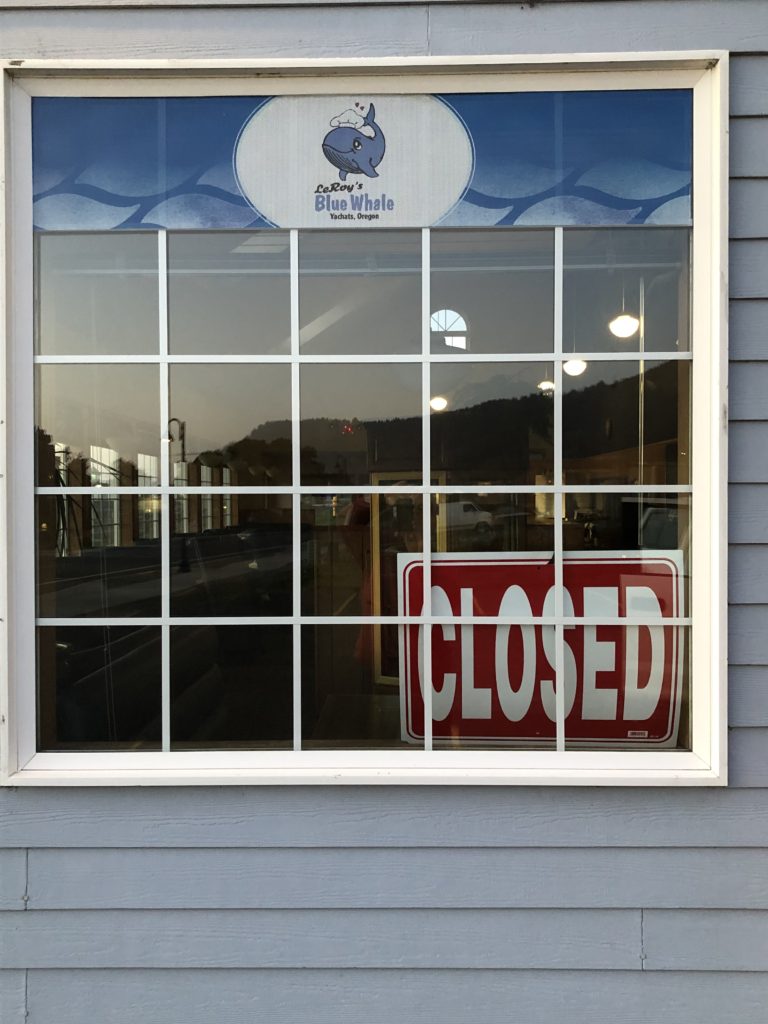
By DICK HUGHES/Oregon Capital Bureau
Gov. Kate Brown’s office has unveiled draft guidelines for how businesses might resume operations during the COVID-19 pandemic.
The guidelines include maintaining strict social distancing and potentially recording customers’ IDs in case health officials need to trace who came in contact with someone infected with the coronavirus. Brown plans a press conference at 10:30 a.m. Friday to introduce COVID-19 testing and contact tracing plans as part of her guidelines for reopening Oregon.
“Consider keeping a record of name, contact information and date/time of visit for customers/visitors for purposes of contact tracing if needed. Businesses should inform customers/visitors of the reason the information is being collected and how the information will be used,” says a draft of employer guidance posted on the governor’s coronavirus website.

The draft offers this suggested language for what to tell customers: “This business is collecting basic information to share with public health in the event a COVID-19 case is identified associated with this business.”
Restaurants and bars would have to limit seating. Patrons might wait in their vehicles until told their table was ready. Video lottery could resume but with six feet of social distancing required.
Liz Merah, one of Brown’s press secretaries, cautioned that the drafts are subject to change.
“These documents are a product of our sector-specific working group discussions with business owners and other stakeholders,” Merah wrote in an email response to questions. “Generally speaking, the goal is to develop guidance for these business sectors that will keep employees and patrons safe from COVID-19 as we work to gradually and safely reopen Oregon.”
Brown plans to reopen the Oregon economy in phases. Businesses have been seeking clarity in how they can keep their staffs and their customers safe, said Katy Brooks, CEO of the Bend Chamber of Commerce.
Each business sector has been working on plans to keep customers apart, which is a top priority.
“They really want their customers to feel very comfortable coming back,” Brooks said. “Some of the industries are looking at some of these guidelines as very difficult to implement, and we’re working through that with the Governor’s Office right now.”
Brooks is particularly concerned about the impact on the child care industry, where restrictions on the number of children per provider could put some out of business. “The margins on child care are so slim, and if you are not at full capacity, you lose money,” she said.
The draft guidelines encourage businesses to consider health checks for employees and customers, such as screening for temperature and respiratory symptoms. Dr. Bob Dannenhoffer, Douglas County public health officer, said that optional approach strikes the appropriate balance.
“I think this guidance is pretty broad and allows people to do what they want to do,” said Dannenhoffer, who also is a member of Brown’s COVID-19 Medical Advisory Panel. “The world has a lot of experience in shutting things down. The world has very little experience in opening things up, and so we’re going to be kind of feeling our way around here.”
The draft guidelines allow people to choose to congregate in groups no larger than 10. Whether in a restaurant, on a trail or at the beach, six feet of social distancing would be required between groups but not within the same group.
Retail stores would need to limit the number of customers so as to maintain six feet of distance, as well as keep customers and employees apart.
Oregonians would be asked not to travel more than 50 miles from home unless necessary to obtain essential services.
Other proposed rules include:
- Continued closure of playgrounds, picnic shelters, water parks, pools and other recreational facilities prone to attracting crowds.
- No customer self-service operations, such as buffets, salad bars, soda machines and growler refilling stations.
- No seating at restaurant bars or counters.
- No reusable menus unless they can be cleaned between customers.
- No karaoke machines, pool tables or bowling.
- Businesses should encourage employees and customers to wear face masks, except when restaurant or bar patrons are seated at a table.
- Specific sanitation measures and informational signs would be required at each business.
The Oregon Capital Bureau in Salem is staffed by reporters from EO Media and Pamplin Media Group and provides state government and political news to their newspapers and media around Oregon, including YachatsNews.com




















